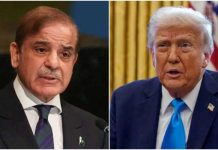By Asghar Ali Mubarak
ISLAMABAD: Foreign Minister Shah Mahmood Qureshi on Tuesday said it was time for the Muslim Ummah to forge a collective response to the current turmoil inside its borders and the ongoing global transition.
“We must be a reliable partner in forging unity, justice, and development across the globe, but not anyone’s accomplice in aggression or domination,” he said in his address at the 48th Session of the Organization of Islamic Cooperation (OIC) Council of Foreign Ministers after Pakistan assumed the Chair.
The foreign minister said the time had come for OIC to strengthen and equip itself to address contemporary challenges and conflicts confronting the Muslim Ummah.
He mentioned that the Muslim world was facing conflicts in the Middle East, prolonged foreign occupation, and the denial of the right to self-determination, most notably to the people of Palestine and Kashmir.
“The Muslim world’s resentment is increasing due to frequent external interventions in Muslim countries,” he said.
He pointed out that left unaddressed, these conflicts and disputes undermined the unity and solidarity of OIC countries, exposed the countries to foreign interference and intervention, fueled terrorism and extremism, and deflected attention from development goals.
To help forge a collective response, and under the theme of ‘Partnering for Unity, Justice, and Development,” the foreign minister stressed uniting for justice for the rights of Muslims under occupation and conflicts with countries beyond the Ummah.
“This should also include the urgency of addressing the pervasive Islamophobia facing Muslims in non-Muslim majority countries,” he said.
FM Qureshi emphasized partnering for development by effectively addressing the triple global crises of COVID-19, development, and climate change.
He mentioned the verses of the Holy Quran as saying: “Hold fast all of you, to the cord of Allah and be not divided”
The foreign minister proposed convening an OIC Ministerial Conference during 2022-2023 to assess the need for establishing a peace and security architecture akin to all other regional organizations.
He said Pakistan stood ready to play its part as a bridge-builder in promoting regional and OIC-driven solutions to internal conflicts.
He said it was a matter of pride for us to host this meeting in 2022 which marked the 75th Anniversary of Pakistan’s independence.
“Promoting solidarity and cooperation within the Muslim Ummah is one of the central pillars of Pakistan’s foreign policy. As Chair of the OIC-CFM during 2022-23, Pakistan’s overarching goal shall be to solidify this bridging role further,” he said.
He commended the leadership role of the Kingdom of Saudi Arabia as the OIC Summit Chair.
Qureshi termed the OIC as the collective voice of nearly two billion Muslims and also a bridge among Muslim nations and the international community.
He also highlighted the collective recent achievements including holding the CFM on Afghanistan, establishing the OIC Humanitarian Trust Fund appointment of Special Envoy of the OIC Secretary-General and launch of Afghanistan Food Security Programme.
He mentioned Pakistan’s role in strengthening OIC’s presence in Afghanistan by reinforcing the OIC Mission in Kabul.
Welcoming the recent designation of 15 March as the “International Day to Combat Islamophobia” by the UN General Assembly, he said Pakistan was gratified to have played its role in garnering consensus on this important issue.
“Through the observance of this Day, the OIC will enhance greater global awareness of Islamophobia and advance solutions through collective action,” he said.
He said the Islamic Chamber of Commerce, Industry and Agriculture, based in Karachi, is a galvanizing investment, influencing policy-making and undertaking initiatives for the development of the private sector.
The foreign minister said Pakistan was witnessing unprecedented turbulence at the global level, adding that conflict in Ukraine which had rekindled East-West tensions, threatens international peace and security.
Qureshi regretted that even after 50 years of the OIC’s establishment, the organization was far from seeing justice for Muslims in many parts of the world.
“The Muslims of Palestine and the Indian Illegally Occupied Jammu and Kashmir (IIOJK) are still reeling under abominable subjugation,” he said.
He highlighted the Indian actions violating the resolutions of the UN Security Council and the OIC on Jammu and Kashmir.
“These illegal acts increased the threat of a conflict between India and Pakistan. Kashmiris are looking towards their Muslim brothers and sisters for support,” he said.
To forge partnership for development, he proposed for the OIC countries to mobilize international support for a comprehensive strategy on vaccine equity, increased development financing, accelerated climate action getting resolute action against illicit financial flows.
He also called for taking advantage of a Preferential System Trade among the OIC member states.
The foreign minister encouraged the efforts of the Afghan authorities to eliminate Daesh (IS-K) and stressed effective strategies needed to deal with other terrorist groups in Afghanistan like TTP, ETIM, IMU, and Al-Qaida.
“We must guard against spoilers that wish to continue destabilizing Afghanistan and using its territory to promote terrorism,” he said.
He expressed confidence that the Conference would strengthen itself by developing and deploying tools for conflict prevention, mediation, reconciliation and peace building.



